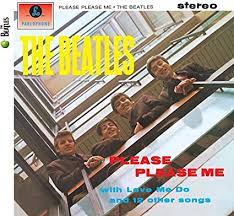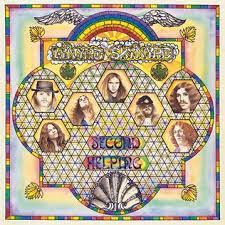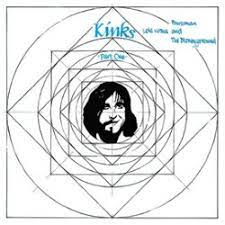Tutorial Pricing: $3.25ea OR any 10 for $10
(use code "Any10410" at checkout)
Paid Requests for $25ea
(comes with any 8 freebies -> so 9 for $25)
100's Of Free Demos & Chord Sheets
Most Popular Rolling Stones Songs
On The Acoustic
Here on this most popular Rolling Stones songs page you'll find a collection of demo covers, free chord sheets, rhythm tips and some info on each song. As well there are full lesson tutorials available for purchase for a small fee.

Jump menu to quickly access the sections.
As Tears Go ByBeasts Of Burden
Brown Sugar
Everybody Needs Somebody To Love
Good Times Bad Times
Honky Tonk Woman
It's All Over Now
Jumpin Jack Flash
Lady Jane
Miss You
Out Of Control
Out Of Time
Paint It Black
Ruby Tuesday
The Last Time
Time Is On My Side
Under My Thumb
You Can't Always Get What You Want
Most Popular Rolling Stones Songs
Lyrics, Demos, Chords, Tutorials
As Tears Go By
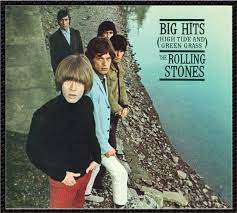
As Tears Go By is a song by The Rolling Stones, released in 1964 and written by Mick Jagger, Keith Richards, and Rolling Stones' manager Andrew Loog Oldham. The song was originally written for Marianne Faithfull, who recorded the original version a few months before The Rolling Stones released their own version.
"As Tears Go By" became a hit in the UK and helped establish The Rolling Stones as a more versatile and mature band. It has since become a classic song and has been covered by many artists over the years, including Nancy Sinatra and The Damned.
The track can be found on their Right Tide And Green Grass album.
Played in standard tuning with a 1-2 down up down up down up and repeat rhythm pattern where 1-2 is arpeggio notes of the chord. Some lead required with the chords G, A, C, D, D/Gb and Em.
Jump To Top
Beasts Of Burden
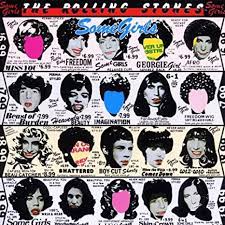
Beasts Of Burden is an iconic song by The Rolling Stones, released on September 9, 1978, as part of their "Some Girls" album. Written by Mick Jagger and Keith Richards, the song explores themes of emotional burden and personal struggle. In the song, "beasts of burden" symbolize people carrying emotional or psychological weight.
The inspiration for the song, as suggested by Richards, was the band's personal struggle with fame, expectations, and personal burdens. T
No lead here just the riff and played in standard tuning. Play just a steady down up down up up up and repeat rhythm pattern and some down-strokes with the chords E, Db, A, E/Ab and B.
Jump To Top
Brown Sugar
Brown Sugar ... info soon.
Jump To Top
Everybody Needs Somebody To Love
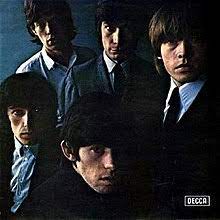
Everybody Needs Someone To Love was recorded by The Rolling Stones and originally written by Bert Berns, Solomon Burke, and Jerry Wexler. The song was included on The Rolling Stones' 1965 album "The Rolling Stones No. 2."
The song has been used in several films and TV shows, including "The Blues Brothers," where it was performed by the film's stars, John Belushi and Dan Aykroyd.
In addition to its musical qualities, "Everybody Needs Somebody To Love" is notable for being one of the first songs to feature Keith Richards on lead guitar.
Another one in standard tuning with a down down down down down down down up down up and repeat rhythm pattern but no lead. Play the chords E, A, D and a Dbm.
Jump To Top Of Most Popular Rolling Stones Songs
Good Times Bad Times
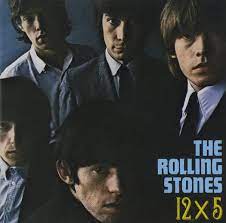
Good Times Bad Times hails from the album "12 x 5," which was released in 1964.
With its pulsating beat and infectious guitar hooks, the song exudes an upbeat rock and roll vibe. The energetic performance by Mick Jagger and the band, combined with the song's infectious melody, make it a fan favorite.
While the song is not as well-known as some of The Rolling Stones' other hits, it remains a beloved deep cut among fans and is still occasionally performed live by the band.
I play down up down up down down up down up down and repeat rhythm pattern here in standard tuning and some lead. The chords here are C, G, F, G7, Adim and Fm.
Jump To Top
Honky Tonk Woman
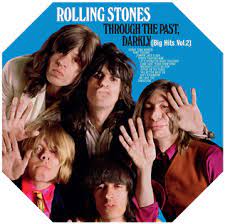
Honky Tonk Woman is a classic rock and roll song by The Rolling Stones, released as a single in 1969. The song was written by Mick Jagger and Keith Richards.
The song was a massive commercial success, reaching No. 1 on the charts in both the United States and the United Kingdom. It has since become one of The Rolling Stones' most famous and beloved hits, and remains a staple of classic rock radio to this day.
In addition to its musical qualities, "Honky Tonk Women" is notable for being one of the first songs to feature Mick Taylor on guitar, who had recently replaced Brian Jones in the band.
This one hails from the album "Through The Past Darkly Big Hits Vol 2".
Played with mainly down strokes with a few riffs, then a down up down down up down up rhythm pattern for the chorus. i play this one on drop D tuning with some lead and the chords G, C, A and D.
Jump To Top
It's All Over Now
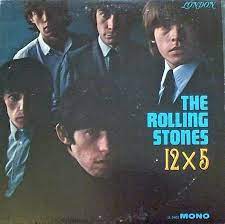
It's All Over Now was originally written and recorded by Bobby Womack. The Rolling Stones' version was released in 1964 as a single and appeared on their album "12 x 5."
The song speaks of a failed romance and the pain of heartbreak. Mick Jagger's vocals perfectly capture the emotional weight of the lyrics, making the song a fan favorite and a classic example of the early rock and roll sound.
The Rolling Stones' version of "It's All Over Now" was a commercial success, reaching the top ten on the charts in both the United States and the United Kingdom.
Over the years the song has been covered by numerous artists, including The Grateful Dead, Rod Stewart, and The Dirty Dozen Brass Band.
The chords are G. F. C and D in standard tuning with some lead and a root down up down up down up and repeat rhythm pattern.
Jump To Top
Jumpin Jack Flash
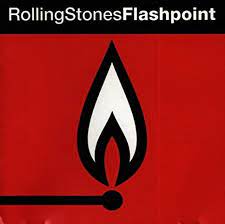
Jumpin Jack Flash was released in 1968 as a single and later included on the groups album "Through the Past, Darkly (Big Hits Vol. 2)." The song was written by Mick Jagger and Keith Richards.
The song's unique guitar pattern and the dynamic vocal performance from Jaggar showcases a distinctive and energetic sound. According to Keith Richards, the song's riff was inspired by a thunderstorm he heard while staying at guitarist Brian Jones' house.
I play a capo 2nd fret here in standard tuning and use mainly down strokes for the rhythm pattern. Some lead with the chords A, C, G and D.
Chords & Lyrics
Jump To Top Of Most Popular Rolling Stones Songs
Lady Jane
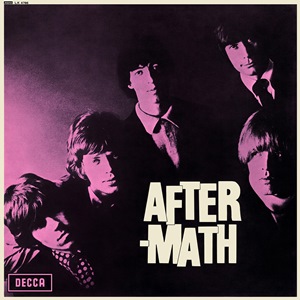
Lady Jane was released as the B-side to the single Mothers Little Helper back in 1966. The song made it to #24 in the US and was fro the bands album "Aftermath". This was the first Stones album where all tracks were written by Mick Jagger and Keith Richards.
This song is mainly played as arpeggio notes with the chords D, C, G, E/Ab, Am and a D/Gb. A little picking in this one in standard tuning.
Chords & Lyrics
Jump To Top
Miss You
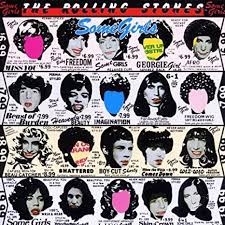
Miss You was released in 1978 from the Stones album "Some Girls." The song was written by Mick Jagger and features him on lead vocals, with a disco-influenced rhythm section and a prominent harmonica solo by Sugar Blue.
Despite some initial skepticism from fans, the song became a massive hit and reached No. 1 on the US Billboard Hot 100 chart.
"Miss You" remains one of the Rolling Stones' most popular songs and is often included in their live performances. It has also been covered by numerous artists over the years, including Tina Turner and Eric Clapton.
The chords in this one are Am, Dm, F, Em and E with a steady shuffle pattern for rhythm and some riffs in standard tuning.
Jump To Top
Out Of Control
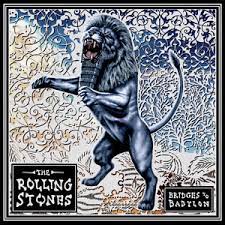
Out Of Control from the Rolling Stones was released in 1998 on their album "Bridges to Babylon." The song was written by Mick Jagger and Keith Richards.
"Out of Control" is a hard-driving rock song with a powerful rhythm section.
It has been performed live by the Rolling Stones numerous times, and a live version was included on their 1998 concert film "Bridges to Babylon Tour '97–98."
The song peaked at #51 in the UK and #12 in Poland.
I play a capo 2nd fret in standard tuning here with down strokes for rhythm. Some lead with the chords Am, F, G, E7 and a C.
Chords & Lyrics
Jump To Top Of Most Popular Rolling Stones Songs
Out Of Time
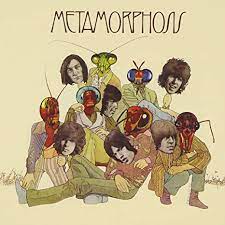
Out Of Time is a song by the Rolling Stones, released in 1975 on their album "Metamorphosis." The song was originally recorded during the sessions for their 1966 album "Aftermath," but it was not included on the album.
"Out of Time" is a mid-tempo ballad with a soulful, R&B-inspired sound. The song was written by Mick Jagger and Keith Richards and features a prominent horn section and backing vocals by the Sweet Inspirations.
The song has been covered by several artists over the years, including Chris Farlowe, who had a hit with his version in the UK in 1966.
Play a down down up down up down up and repeat rhythm pattern in standard tuning. Some lead here with the chords G, D/Gb, C, D and an Em.
Jump To Top
Paint It Black
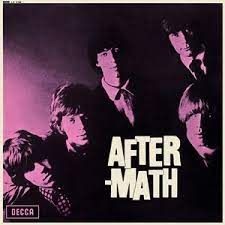
Paint It Black was released in 1966 as a single and later included on the album "Aftermath." The song was written by Mick Jagger and Keith Richards and features Brian Jones on sitar.
"Paint It Black" is known for its
distinctive, steady rhythm and haunting melody, as well as its
innovative use of the sitar in a rock song.
The song was a major hit for the Rolling Stones, reaching No. 1 on the US Billboard Hot 100 and the UK Singles Chart.
The chords here are Dm, A7, C, F and A7/A# in standard tuning. Some lead with a down up down up down up and repeat rhythm pattern.
Jump To Top
Ruby Tuesday
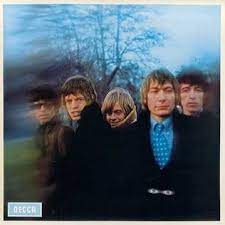
Ruby Tuesday is a popular song by the Rolling Stones, released as a single in 1967. The song was written by Mick Jagger and Keith Richards and is widely regarded as one of their most popular and enduring songs.
This song was a commercial success, reaching the top ten on both the UK and US charts. It is widely considered to be one of the Rolling Stones' greatest songs and has been included on several of the band's greatest hits albums as well as the album "Between The Buttons".
For rhythm play a down down down up down up and repeat rhythm pattern with a capo 1st fret in standard tuning but no lead. For chords play an Am, Am/G, F, G, C, Gsus, D7, G7 and A#.
Jump To Top Of Most Popular Rolling Stones Songs
The Last Time
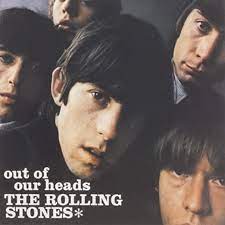
The Last Time was a 1965 single and later included on their album "Out of Our Heads."
"The Last Time" is a classic example of the Rolling Stones' early rock and roll sound. The lyrics describe a man warning his partner that he will not tolerate her infidelity any longer, and the sense of urgency and determination in Jagger's vocals add to the song's power and intensity.
"The Last Time" was a major hit for the Rolling Stones, reaching No. 1 in the UK and No. 9 in the US. It has since become one of the band's most beloved and enduring songs, and has been covered by numerous artists over the years.
The three chords here are E, D and A in standard tuning with some lead. Play a root down root up down up rhythm pattern with some riffs.
Jump To Top
Time Is On My Side
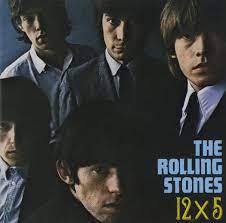
Time Is On My Side was originally recorded by the jazz trombonist Kai Winding in 1963 and later covered by the Stones in 1964 for their album "12 x 5." The song was written by Jerry Ragovoy, under the pseudonym of Norman Meade.
"Time Is on My Side" was a moderate hit for the Rolling
Stones, reaching No. 6 on the US Billboard Hot 100 chart. This single did not chart in the UK market.
The song has been covered by numerous artists over the years, including Irma Thomas, the Moody Blues, and the Who.
A down down down up down up down and repeat rhythm pattern will work here with a capo 3rd fret in standard tuning. Some lead with the chords G, Bm, E, A and D.
Jump To Top
Under My Thumb
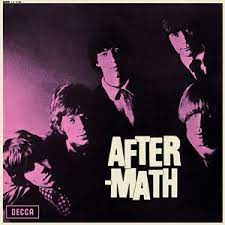
Under My Thumb was created by the Rolling Stones way back in 1966 when it was part of their album called "Aftermath."
Even though it wasn't released as a single in the UK or US, it's still one of the most loved songs by the Rolling Stones. It has a long history of being performed live and is very important culturally.
Mick Jagger and Keith Richards, who started the Rolling Stones and wrote most of their songs, wrote this song together.
Some lead here with the chords Gbm, E, D, A and B7 in standard tuning. I play a down down up down up down up and repeat rhythm pattern for this number.
Jump To Top
You Can't Always Get What You Want
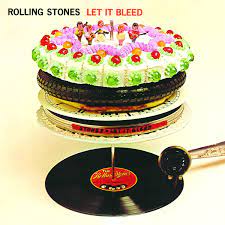
You Can't Always Get What You Want is a great tune that never charted in the UK and barely made the top 40 in the US when it was released in 1973.
The song has become one of the Rolling Stones' most enduring hits, and has been covered by numerous artists over the years, including Aretha Franklin, U2, and Bon Jovi.
The three chords here are G, C and A7 in standard tuning. Play a root down up root down and repeat rhythm pattern and some lead required.
Jump To Top Of Most Popular Rolling Stones Songs
If you liked this most popular Rolling Stones songs page you might also like ... (click images)
The Rolling Stones Documentary
Official Website
Popular Songs From The 60s
